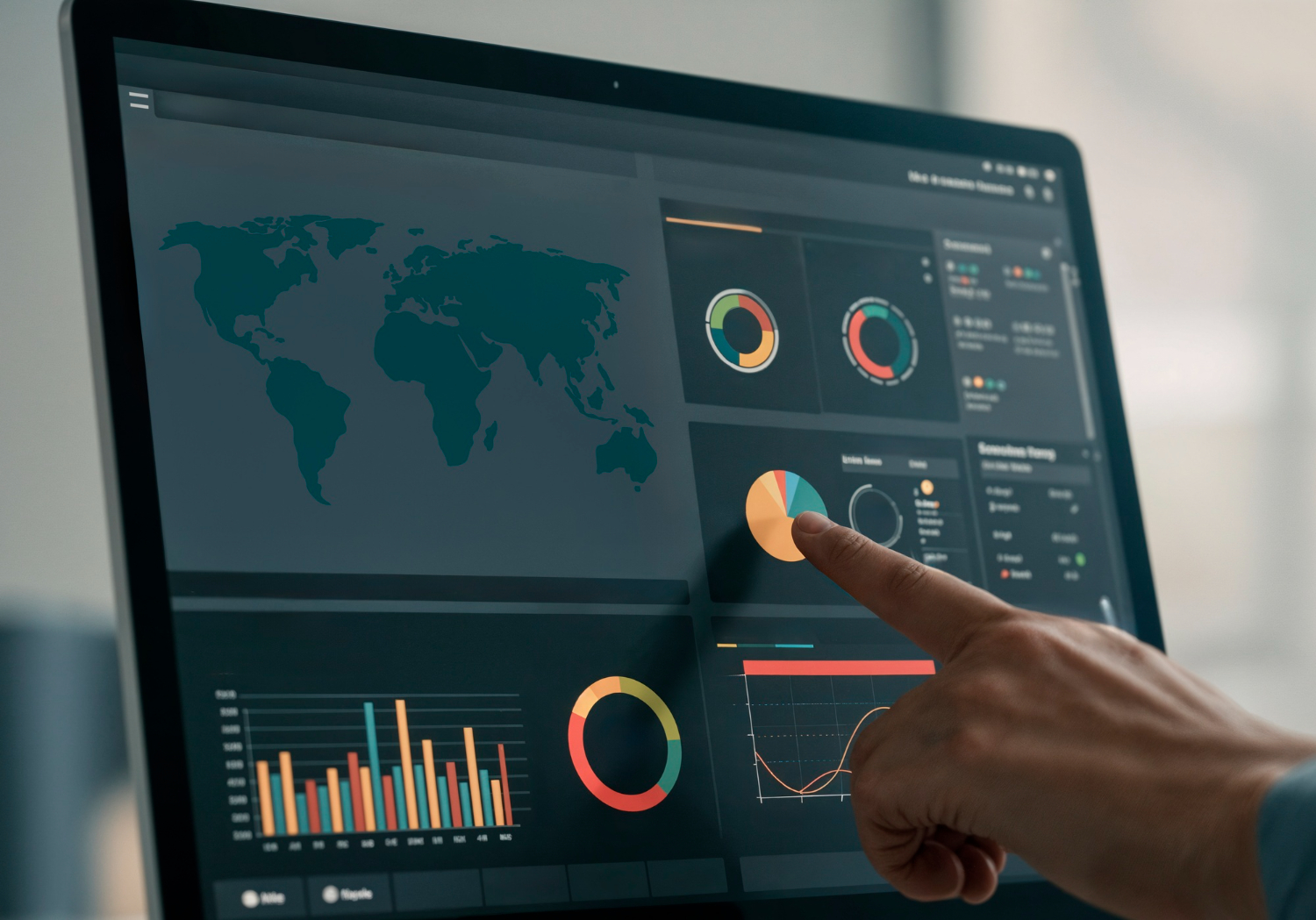Data Democratization in 2025
September 24, 2025
8 min. reading time
Making Data Accessible, Secure, and Actionable Across the Enterprise
In today’s enterprise landscape, data should be a shared advantage, not a gated asset. Yet, too often, it is trapped in silos, controlled by outdated legacy systems, departmental boundaries, or technical gatekeepers.
The result? Slower decisions, missed insights, and unnecessary costs.
Data democratization, the process of making data accessible to non-technical users across the organization, aims to change that. It is about getting the right data into the right hands at the right time, without compromising governance or privacy.
At Kloud9, we view data democratization not as a tooling upgrade, but as a strategic imperative, a foundation for augmented analytics, predictive intelligence, and self-service BI at scale.
What Is Data Democratization, Really?
At its core, data democratization is a shift from centralized, restricted access to a model where data is:
- Unified data platforms that break down technical silos
- Explorable through self-service tools with natural language querying
- Governed with role-based access and compliance controls
- Understood by a data-literate workforce empowered to make decisions
When implemented effectively, democratized data environments lead to:
- Faster decisions
- More agile strategies
- Reduced dependency on IT for routine reporting
Why Data Democratization Matters Now
Several forces are accelerating the urgency for democratized data:
- Explosion of enterprise data: With real-time inputs from IoT, apps, and user behavior, data volumes are growing faster than traditional workflows can handle.
- Demand for agility: Business units can't afford to wait days or weeks for reports. They need insight on-demand.
- Rise of AI and augmented analytics: Technologies like predictive analytics and Gen AI are only as powerful as the data they’re fed.
- Evolving privacy regulations: GDPR, CCPA, HIPAA, and others make it essential to have structured, role-aware access and auditability.
When data is democratized and governed, it becomes a competitive advantage, fueling innovation without putting your business at risk.
Real-World Transformation: Supply Chain Visibility Through Data Democratization
One Kloud9 client, a leading U.S. fashion retailer, needed to reduce costly inefficiencies across their logistics and supply chain. Trucks were routinely arriving at stores with fewer packages than forecasted, leading to overstaffed shifts, inventory mismatches, and lost revenue.
The underlying issue? Disconnected systems and siloed data. Demand forecasts lived in one system, purchase orders in another, and store-level data was nearly impossible to reconcile.
The Kloud9 Solution:
To break the cycle, Kloud9 delivered a machine learning-driven solution built on cloud infrastructure and anchored by a centralized data platform. The team:
- Migrated the retailer’s IBM Sterling Order Management System (OMS) from on-prem to AWS
- Consolidated fragmented logistics, demand, and inventory data into a unified SQL-backed repository
- Built ML models including ARIMA for time series forecasting, machine learning models like XGBoost and random forest for predictive analytics to forecast delivery quantities and optimize associate planning
- Developed a 360-degree productivity planning dashboard to provide transparency across vendor, distribution center, and store levels
The Outcome:
With a shared view of trusted data, logistics, operations, and planning teams could align in real time. The client:
- Improved package-level forecast accuracy
- Reduced labor overstaffing and underfunding
- Minimized variance between planned and actual deliveries
- Turned siloed analytics into cross-functional decision-making
This is data democratization in action: taking highly technical infrastructure, building transparency into it, and giving operations teams the tools to make faster, smarter calls.
How to Adopt Data Democratization in Your Organization
Data democratization does not happen by accident. Here are four foundational pillars:
1. Adopt a Unified Data Platform (UDP)
Centralize access and create a “single source of truth” across departments. Platforms should support real-time ingestion, governance, and scalable analytics.
2. Leverage Self-Service & Augmented Analytics
Tools like Tableau, Power BI, and ThoughtSpot, with natural language querying and AutoML, let users explore insights without writing code. Kloud9 often integrates these tools into client-specific UDPs.
3. Build Role-Based Access Controls
Balance access and risk with tiered permissions, data masking, and audit trails. Democratization is not a free-for-all, it is access with accountability.
4. Invest in Data Literacy
Upskill business users through training, use-case-driven dashboards, and embedded analytics to build confidence and understanding. Following frameworks such as the Data Literacy Project can provide structured guidance.
Challenges & How to Overcome Them

Why Data Privacy and Governance Still Matter
Democratizing data does not mean exposing everything. With modern frameworks, Kloud9 helps enterprises maintain strict compliance with data privacy laws like GDPR, HIPAA, and CCPA by:
- Tokenized, role-aware access
- Region-based segmentation
- Real-time usage monitoring
- No raw data exposure
This makes data safe, trackable, and trustworthy, critical ingredients in any democratization effort.
The Future of Democratized Data
As we look ahead, successful organizations will treat data democratization as an operating model, not a tech feature. Expect more:
- Agentic AI tools, autonomous systems that proactively deliver insights to the right users
- Federated governance models that support global data teams
- Embedded analytics that bring insights directly into workflows
And at the center? A data-literate workforce, equipped with access, training, and trust.
When done right, data democratization unlocks the full value of your enterprise data, driving faster decisions, smarter strategies, and better outcomes across every team.
But it is not just about dashboards. It requires intentional investment in platforms, processes, and people, backed by strong governance and modern architecture.
At Kloud9, we help organizations design for scale. From Unified Data Platforms and predictive pipelines to self-service analytics and governance frameworks, our solutions grow with your business.
Ready to unlock smarter, faster decisions with secure data access?
Let’s build your data democratization roadmap. Contact Kloud9 to start your journey.



